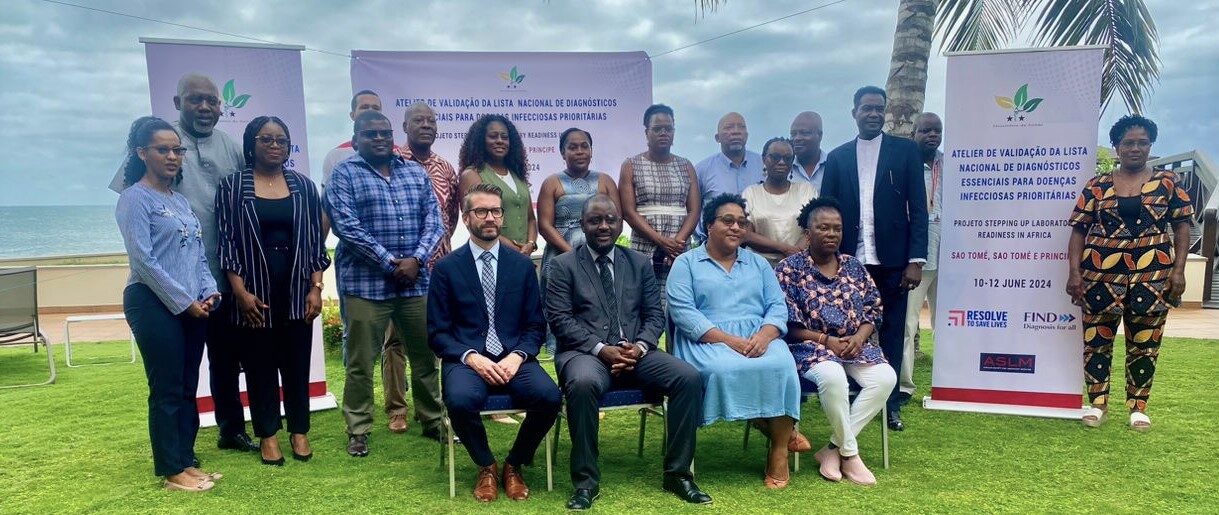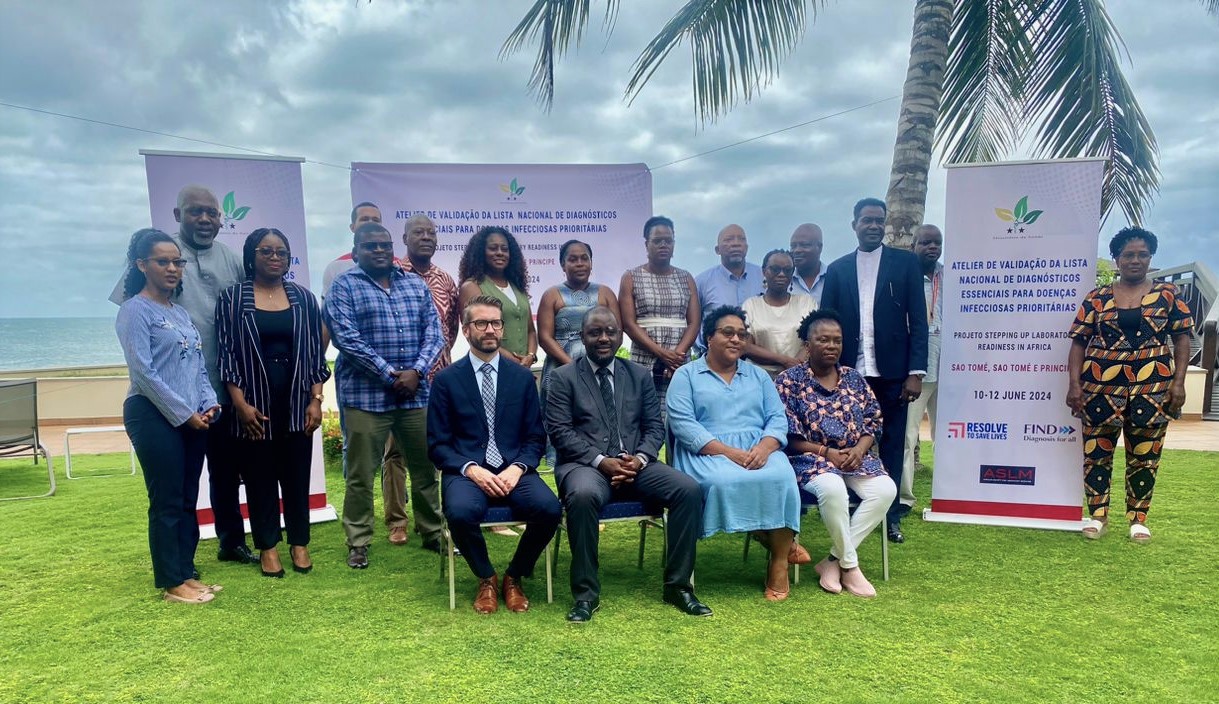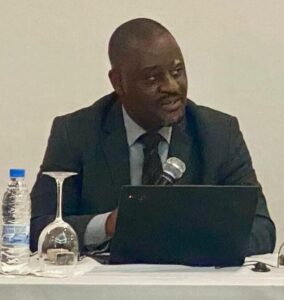 In a significant move to bolster public health infrastructure and preparedness, São Tomé and Príncipe is hosting a three-day workshop focused on developing a National Essential Diagnostics List (NEDL) for priority infectious diseases. This workshop, taking place from 10-12 June, is a collaborative effort between the São Tomé and Príncipe Ministry of Health and the African Society for Laboratory Medicine (ASLM), with support from the Resolve to Save Lives initiative.
In a significant move to bolster public health infrastructure and preparedness, São Tomé and Príncipe is hosting a three-day workshop focused on developing a National Essential Diagnostics List (NEDL) for priority infectious diseases. This workshop, taking place from 10-12 June, is a collaborative effort between the São Tomé and Príncipe Ministry of Health and the African Society for Laboratory Medicine (ASLM), with support from the Resolve to Save Lives initiative.
The workshop opened with remarks from Dr Talkmore Maruta, Acting Director of Programs at ASLM, who emphasised the critical role of diagnostics in health security and public health decision-making. He said, “the development of the NEDL is a pivotal step in ensuring that our diagnostic capabilities are robust and responsive to the needs of our communities. This initiative is not only about improving laboratory systems, but also about safeguarding public health.”
The NEDL aims to identify and prioritise essential in-vitro diagnostics (IVDs) that should be available at various levels of the national healthcare system. This strategic list is designed to enhance the allocation of resources, thereby increasing access to crucial diagnostics and improving overall health outcomes.
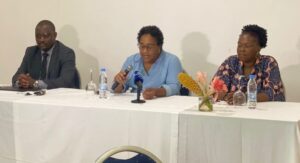 Dr Andreza Batista de Souza, Surveillance Coordinator at the São Tomé and Príncipe Ministry of Health, highlighted the importance of this initiative, stating, “as a country, we have realised that there are many capacity gaps in diagnostics, and this NEDL is critical in prioritising resources to capacitate our diagnostics.” She predicted, “this will enable us to prepare and respond effectively to any public health emergencies.”
Dr Andreza Batista de Souza, Surveillance Coordinator at the São Tomé and Príncipe Ministry of Health, highlighted the importance of this initiative, stating, “as a country, we have realised that there are many capacity gaps in diagnostics, and this NEDL is critical in prioritising resources to capacitate our diagnostics.” She predicted, “this will enable us to prepare and respond effectively to any public health emergencies.”
The workshop also marks the second phase of the Resolve to Save Lives project, which is being implemented in other African countries including Burkina Faso, Cameroon, and Gabon. These countries were selected based on capacity and capability gaps identified through the World Health Organization’s Joint External Evaluation (JEE) and State Party Self-Assessment Annual Reporting (SPAR) assessments.
The key objectives of the Resolve to Save Lives project include:
- Supporting the operationalisation and continuous improvement of specimen referral systems for the detection of priority pathogens.
- Ensuring the availability and adequate utilisation of selected core tests for priority pathogens at centralised and decentralised testing sites.
- Facilitating the uptake of project interventions in health and laboratory systems strengthening funding requests and national health security operational plans.
- Developing and monitoring the implementation of practical recommendations and operational guidance for assigning diagnostics essential for the detection of priority pathogens across all levels of national laboratory networks.
During the workshop, participants will discuss the draft NEDL, provide feedback and suggestions for improvement, and validate the proposed list. The ultimate goal is to agree on recommendations and guidance for the next steps in the implementation of the NEDL.
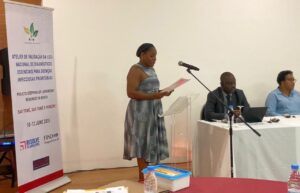 The ASLM, a pioneering pan-African non-profit organisation, has been instrumental in advocating for and coordinating efforts to enhance the quality of laboratory medicine and healthcare diagnostics across the continent. Under its five-year strategy, ASLM has prioritised education, training, knowledge sharing, network and laboratory systems strengthening, and the establishment of standards and regulations.
The ASLM, a pioneering pan-African non-profit organisation, has been instrumental in advocating for and coordinating efforts to enhance the quality of laboratory medicine and healthcare diagnostics across the continent. Under its five-year strategy, ASLM has prioritised education, training, knowledge sharing, network and laboratory systems strengthening, and the establishment of standards and regulations.
Dr Maruta expressed his gratitude to the Government of São Tomé and Príncipe for their partnership, as well as to international partners such as the World Health Organization (WHO), Africa CDC, FIND, and the United Nations Development Program (UNDP) for their support. He also thanked the participants and the dedicated ASLM team for their active engagement and contributions. He concluded that, “ASLM is committed to continuing our support in strengthening laboratory systems and networks to achieve national health objectives and health for all.”
The successful implementation of the NEDL in São Tomé and Príncipe is expected to serve as a model for other countries in Africa, highlighting the importance of strategic planning and resource allocation in improving public health outcomes.
